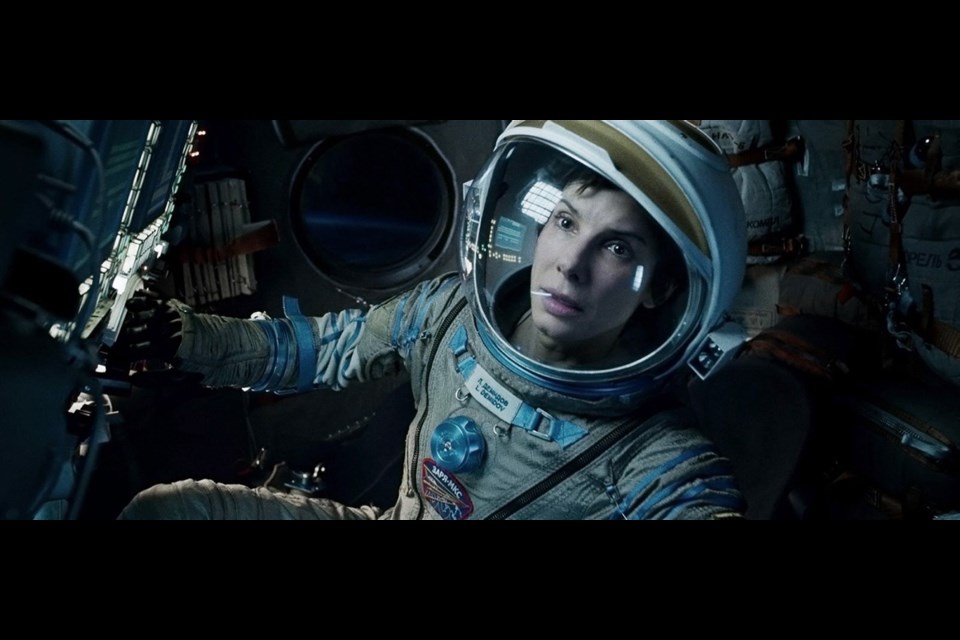It would appear film buffs and Oscar pundits can agree on at least one thing about this season’s best picture Oscar race.
It’s the year of the Hollywood three-way, which might sound like a scene from Wild Things, but isn’t. It refers to the showdown between 12 Years a Slave, Gravity and American Hustle.
Try as we might to resist placing our bets and vent about who should win, it’s all part of the game, says Michael Real, professor of communications and culture at Royal Roads University.
“It’s inevitable,” he says. “It’s like politics. Coverage tends to get caught up on who’s going to win. People get caught up in the horse-race side of it and enjoy it.”
The enjoyment factor also plays a starring role in determining what we see on Oscar night, Real says. The affable academic discovered this during research projects he conducted while living in Southern California for 29 years.
Real, who taught at the University of California at San Diego and San Diego State University, has extensively researched how media and culture influence each other.
“We did a survey of viewers and we found two different types — moviegoers and TV watchers,” said Real, whose findings were published as articles and in books, including his 1989 book Super Media: A Cultural Studies Approach. “We found moviegoers were especially active in predicting winners, while TV watchers were watching more for the musical numbers and celebrity chit-chat.”
Real interviewed Marty Pasetta, the live-telecast veteran who directed the Academy Awards shows from 1972-88, while researching how the world’s top-rated telecast is produced, what motivates its content, audience response and its cultural significance.
“The Oscars have done much better than the Super Bowl for a reason,” he said. “The Oscars are very popular in Latin America and other parts of the world.”
Real’s interview with Pasetta, accustomed to Hollywood puff pieces, was a revealing experience punctuated by drama.
“You mess with me and you’ll never work in this town again,” Pasetta warned him before he left.
“As a social scientist I wanted to get the facts,” said Real, recalling Pasetta also discussed such challenges as preparing “backups to backups” and strategic seating charts for nominees.
“They’re carefully set up so a winner won’t have to walk in front of a loser in that category,” Real said. “It makes sense. You don’t want a catfight.”
Real became more tolerant of flubs after Pasetta emphasized how little rehearsal time was available in the facilities.
“You only get a walkthrough with the celebrities the day before, so it’s surprising there there aren’t more flaws,” Real said.
After comparing footage and transcripts from early shows, Real said he was struck by how much they have stayed the same.
The expanded number of best picture nominees implemented in 2009 harkens back to the “golden age” — 1939, for instance, when winner Gone with the Wind had nine competitors.
“It broadens the appeal for people picking the winners,” he said. “More tangibly, the economic return for not just winning but being nominated tends to be significant.”
The expansion was an extra hook to counter slipping ratings, he theorizes, and likely influenced by the rising profile of the Golden Globes and other shows.
With celebrity culture now off the charts, fuelled by social media, Real doesn’t foresee the show’s star power diminishing.
“It’s a huge part of the appeal. You get to see your favourite stars, out of their roles, which is not always that impressive,” he says. “The show is very consistent. It’s too long, with lots of dead moments and winners walking up to the stage thanking people no one’s ever heard of. But they’ve managed to survive those kinds of obstacles.”
Daring to be different has sparked misfires, of course, such as David Letterman’s ill-fated hosting gig, and Seth MacFarlane’s controversial turn last year.
“I think Seth’s We Saw Your Boobs [song referring to actresses’ cleavage] is an all-time low,” Real said. “It’s a sensitive point because Hollywood has a long history of chauvinism and patriarchy.”
He says that might be why Ellen DeGeneres is hosting this year.
“You feel that maybe after Seth they’re going more conservative … with a lesbian host,” he quips.
One thing Real discovered was why the commercial breaks seem so frequent at certain points.
“I wondered why it dragged until I learned it was contractual,” he said. “Once they hit the major awards, it can’t be interrupted by commercials.”
Love or hate the Oscar telecast’s eclectic format, Real reiterates there’s a method to this Oscar madness.
“What it boils down to is it’s a three-hour TV commercial for the Hollywood industry that people watch all over the world.”
